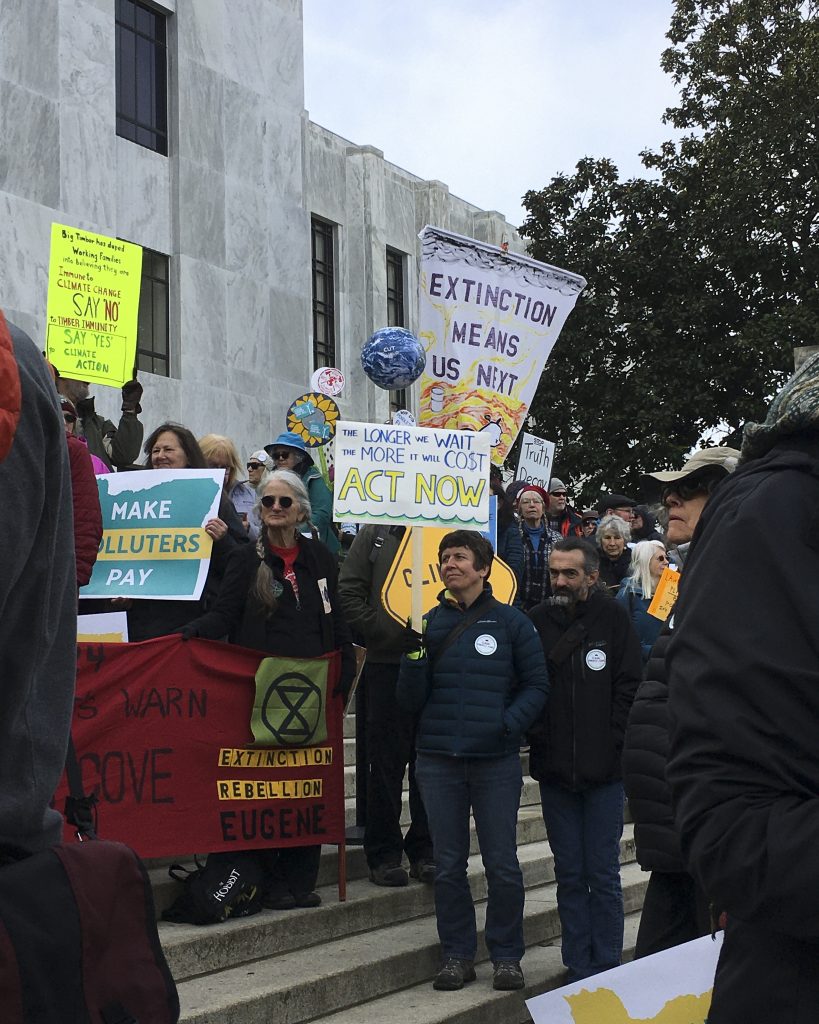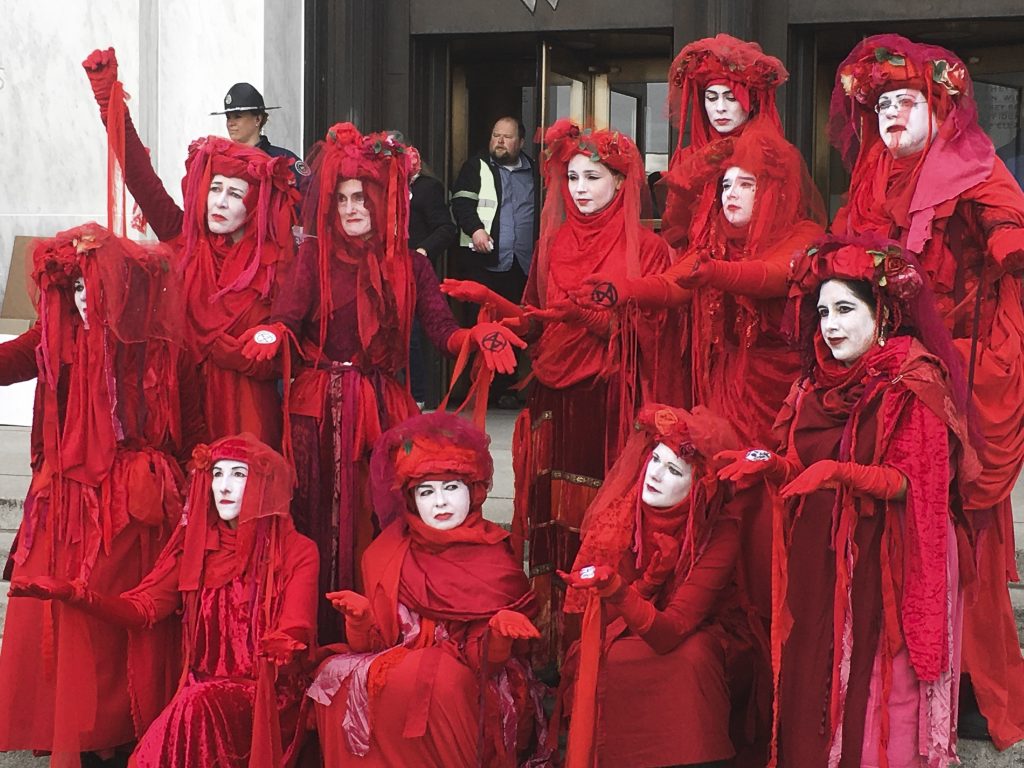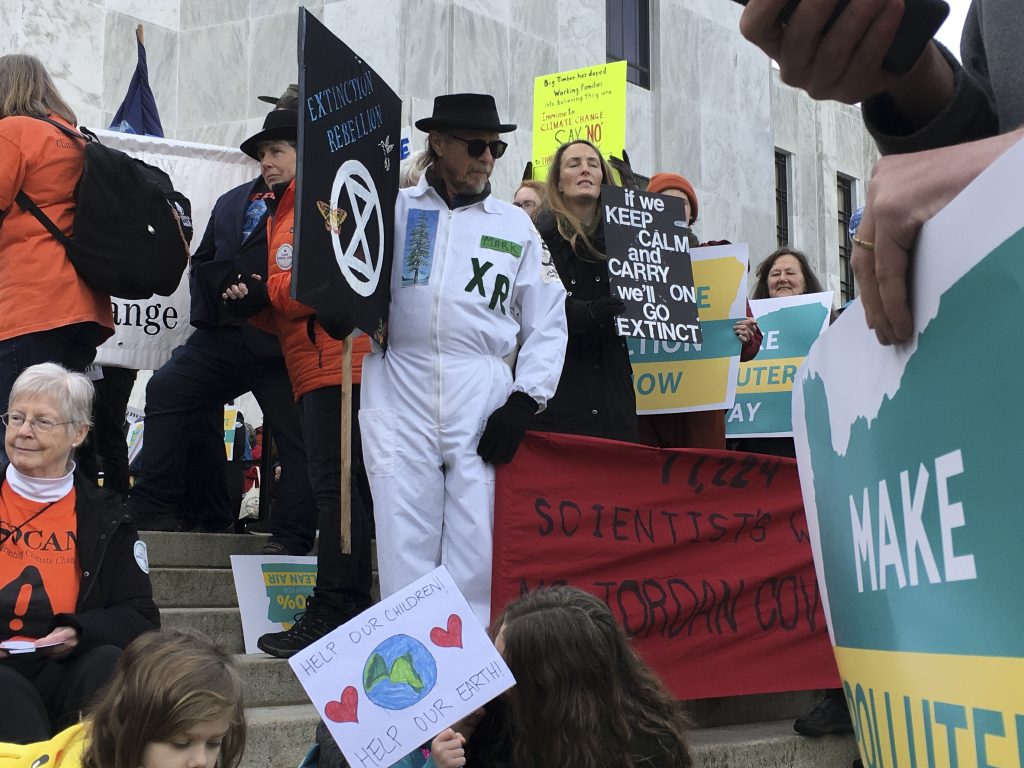
Sage Kiernan-Sherrow | News Editor
The Timber Unity protest against Senate Bill 1530 on Thursday, Feb. 6, reportedly rallied over 2,000 people and brought over 1,000 trucks to the capitol, according to The Statesman Journal. It was countered by Renew Oregon, a coalition of groups in support of the bill on the following Tuesday, Feb. 11, when over 1,000 individuals rallied at the capitol in its defense.
Senate Bill 1530, or the cap-and-trade bill as it’s often referred to, would target Oregon’s highest polluting companies of carbon emissions and hold them accountable for emissions higher than the proposed cap would allow, causing them to pay to utilize those emissions and eventually resort to more sustainable options. However, there are concerns over its economical feasibility.
Kathy Hadley, a local farmer and member of Timber Unity, said the bill has extremely negative consequences for rural Oregonians, who believe their costs of living will dramatically increase after the bill causes companies to move out of state and fuel prices to rise.

“We’re concerned about the money it would cost and the way it’s being handled, how they’re trying to pass such sweeping legislation on a partisan line with so significant effort to address the concerns of the minority,” Hadley stated.
Oregonians supporting the efforts of Renew Oregon say that the bill is in response to what they believe is a current climate emergency and that the government and the fossil fuel industry are lying about the state of the environment. They counter Timber Unity’s argument, saying that the bill will actually work to provide more jobs, while acknowledging that sacrifices need to be made in order to survive.
A speaker at the rally on Feb. 11 and a youth activist, Maya Stout is a fifteen-year-old student at Newport High who became passionate about advocating for the environment after witnessing changes in her community and stated, “we have to define what an impacted community is … climate change destroys not only the environment but the economy sustained by it.”

Eric Richardson, the Eugene-Springfield NAACP president, added that “this is not a political issue, it’s a moral issue,” and reminded the crowd that rural people, marginalized people and people of color are fighting on the frontlines against climate change.
Timber Unity remains unconvinced.
Hadley expressed doubts over the bill’s ability to help save the environment, stating that Timber Unity had proposed ways to commit to seeing immediate change, and that she would rather people recognize the good that people are trying to do, rather than just taxing the negative.
To read the bill itself, visit https://olis.oregonlegislature.gov/.
Contact the author at howlnews@wou.edu
Photos by Sage Kiernan-Sherrow

